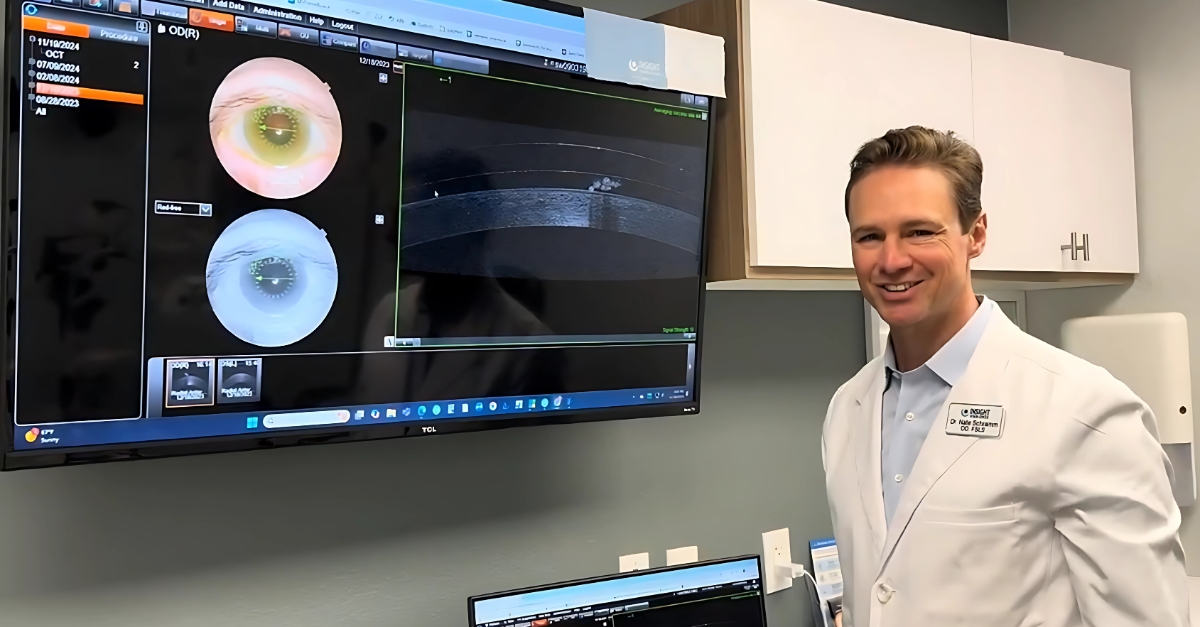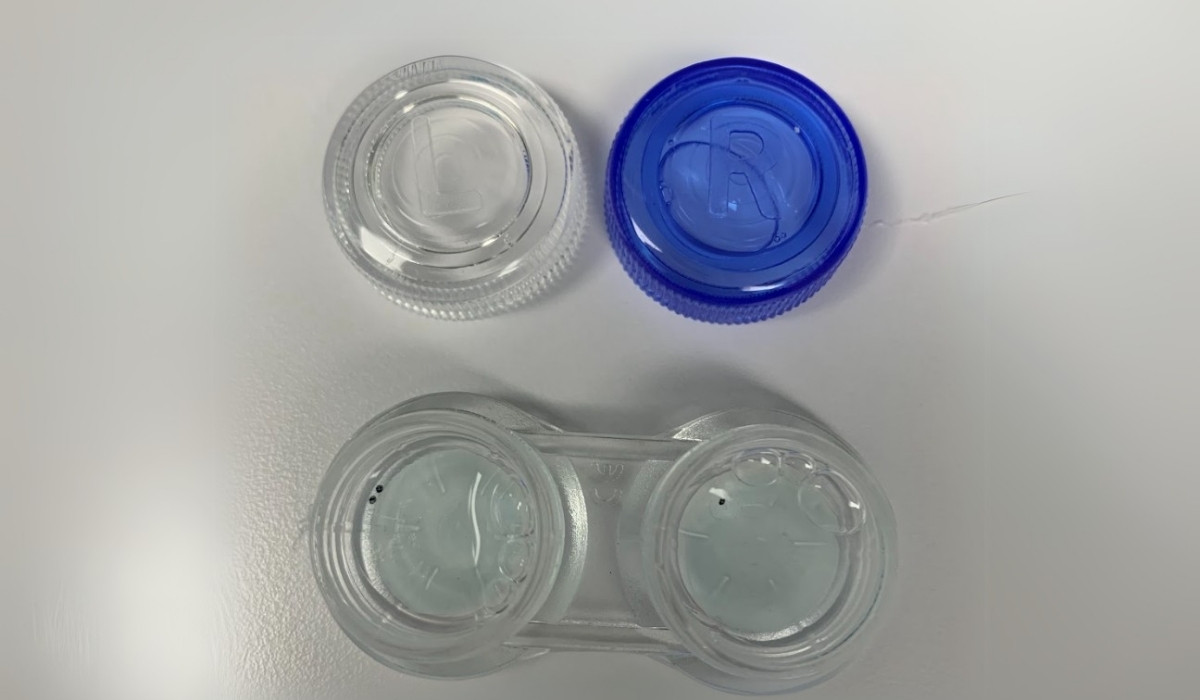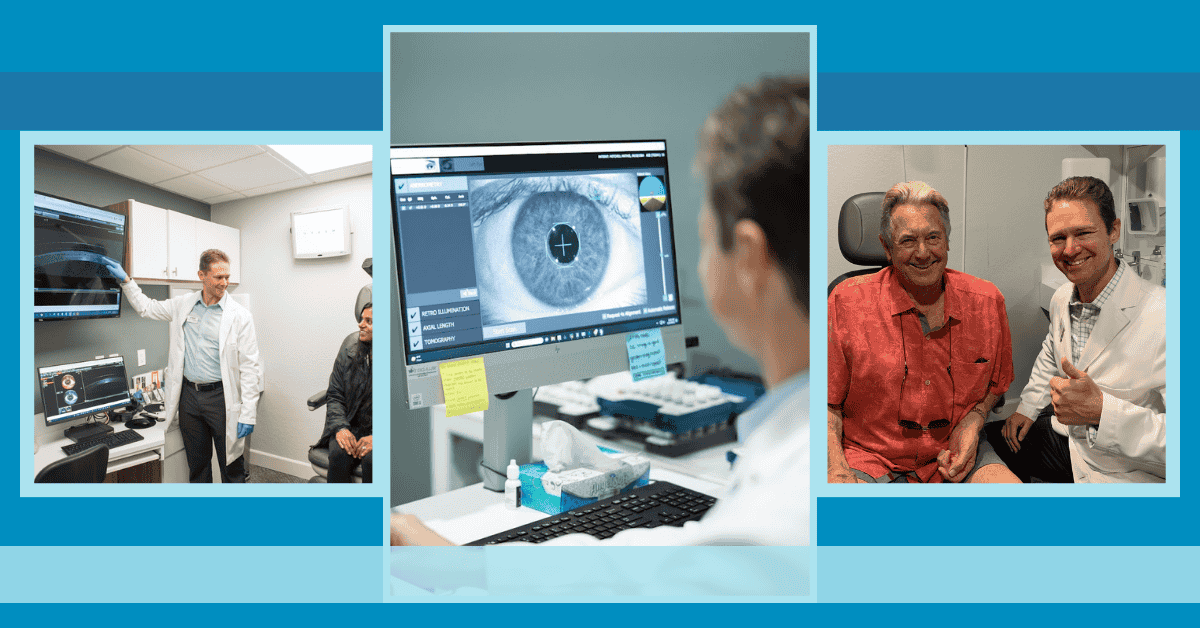Medically Necessary Contact Lenses
- Soft Contact Lenses for Mild Keratoconus: Kerasoft & NovaKone Lenses
- Hybrid Contact Lenses for Keratoconus: Comfort and Clarity Explained
- Why Scleral Contact Lenses Are Revolutionizing Keratoconus Treatment
- Relief for Sjogrens Dry Eyes: How Scleral Lenses Provide All-Day Moisture
- Halos? Clear Night Vision with Scleral Lenses for Severe Astigmatism
If you struggle with vision challenges that standard glasses can’t correct, understanding medically necessary contact lenses can be transformative. At Insight Vision Center Optometry, located in your area, we specialize in prescribing lenses tailored to your specific eye conditions. This page will help you learn how these specialized lenses can greatly enhance your visual clarity and overall ocular health.

Understanding Medically Necessary Contact Lenses
Medically necessary contact lenses differ from everyday lenses by being prescribed for patients whose eye conditions require more than a simple prescription change. These lenses are considered a standard of care for various eye conditions where glasses fall short. Whether the concern is a high refractive error or an underlying medical condition in the eye, these contact lenses provide both visual rehabilitation and protection.
Types of Medically Necessary Contact Lenses
The specific type of lens prescribed depends on the individual patient’s condition and the unique characteristics of their eyes. The goal is to provide the most effective correction and protection while offering comfort and stability for daily use. Our cornea specialist carefully consider the patient’s ocular health to determine the best option available.

Common Medical Conditions Requiring Special Contact Lenses
The decision to prescribe medically necessary contact lenses is based on specific ocular conditions where conventional correction methods fail to provide adequate support. These lenses are your eyes’ best friend when it comes to matching a unique anatomy or dealing with complex refractive errors.

Benefits of Medically Necessary Contact Lenses
Medically necessary contact lenses offer benefits that extend beyond simple vision correction. They improve the overall quality of life by addressing conditions that can otherwise lead to discomfort or even further deterioration of eye health when left untreated.
Enhanced Visual Acuity
For patients with high refractive errors or significant corneal irregularities, standard corrections may not yield the desired visual clarity. Medically necessary lenses, whether they are RGP, scleral, or hybrid, provide significant improvements in visual acuity. They create a smooth optical surface, ensuring light is directed accurately onto the retina, which is essential for clear, stable vision.
Improved Comfort and Ocular Health
When the eye’s surface is irregular or compromised, wearing traditional lenses can lead to increased discomfort. Custom-designed lenses can protect the cornea, reduce irritation, and maintain moisture on the eye’s surface—particularly important for those with conditions like Sjögren’s syndrome or severe dry eye. By creating a protective barrier, these lenses help to minimize the risks associated with ongoing corneal damage.
Customized Vision Correction
No two eyes are the same, and medically necessary contact lenses are crafted to meet the individual needs of every patient. When standard lenses or glasses fall short, specially fitted lenses provide a higher level of correction that takes into account unique anatomical differences. This customization is key to ensuring that patients achieve the fullest visual potential possible while also addressing the underlying condition.
Reduced Dependence on Glasses
For many patients, managing a significant refractive error or corneal irregularity with glasses is simply impractical. Medically necessary contact lenses offer an alternative that not only corrects vision more effectively but also frees patients from the limitations imposed by heavy or uncomfortable spectacles. This enhanced freedom can contribute to improved day-to-day performance, both at work and in personal activities.
Process of Contact Lens Fitting
The process of fitting medically necessary contact lenses is meticulous and tailored directly to the patient’s needs. Unlike regular lenses, these fittings require an extra level of precision. The goal is to ensure both excellent vision correction and long-term comfort while safeguarding the health of the ocular surface.
Initial Consultation and Detailed Measurements
During the initial consultation, our cornea specialist measure key parameters like corneal curvature and refractive errors. Advanced imaging techniques help map out the surface of the cornea to identify irregularities that demand a specialized lens design. This step is essential in selecting the most effective lens type and ensuring it matches the unique contours of your eye.
Examining Ocular Health
A comprehensive assessment of the ocular surface is crucial. Our cornea specialist evaluate the cornea, conjunctiva, and eyelids to determine how the chosen lens will interact with the eye. For patients with conditions such as severe dry eye or previous corneal surgeries, this careful evaluation minimizes the risk of irritation or additional complications.
Prescription Confirmation and Final Fitting
Once the initial measurements are complete, a trial lens fitting is conducted. The lens is checked for proper centering, stability during blinking, and overall patient comfort. Adjustments are made as necessary so that the final prescription is optimized for the best level of visual acuity. This step is also useful for confirming that the chosen lens type – whether it is a rigid, hybrid, or scleral design – meets the specific needs of the condition.
Qualification Process for Medically Necessary Contact Lenses
Before a contact lens is classified as medically necessary, our cornea specialist must perform a comprehensive evaluation along with detailed documentation. This rigorous process not only ensures that the patient receives the most appropriate lens but also helps navigate the intricacies of insurance coverage provided by third-party payors such as Vision Service Plan (VSP) or EyeMed Vision Care.
Getting the right medically necessary contact lens is a multi-step process that starts with a thorough eye exam. Here’s how the process generally unfolds:

Insurance Coverage and Documentation
Navigating insurance for medically necessary contact lenses can be complex. Vision services plans like VSP and EyeMed Vision Care have distinct criteria for covering these lenses. Obtaining the necessary reimbursement involves detailed documentation and clinical justification.

The Highest Rated Advanced Eye Care Center In Orange County

What Our Patients are Saying
“The quality of service and expertise is the highest I have ever received at any optometry office. I walked in with 20/200 vision and now see 20/25 with my new sclera lenses. Thanks guys!!”
⭐⭐⭐⭐⭐
Chuck D.
“Best optometrist I have ever visited. They are experts with my eye condition (keratoconus) all staff super friendly. And dr Schramm is very professional and passionate to get you the best vision possible. I absolutely recommend insight vision center optometry.”
⭐⭐⭐⭐⭐
Emmanuel B.
Meeting the Vision Plan’s Criteria
Each vision plan has its specific guidelines, often based on metrics such as the degree of refractive error or the severity of a corneal condition. Our cornea specialist ensure that the submitted clinical records include:
- A detailed description of the patient’s condition, using measured values such as keratometric readings or severity of astigmatism.
- Evidence from diagnostic tests like corneal topography which clearly shows the irregularities uncorrectable by glasses.
- Clear documentation of previous treatment failures or inadequacies, making the case for why a medically necessary lens is required.

Clinical Justification and Reimbursement
To support reimbursement, every case includes a full medical record that demonstrates how the lens will correct the condition. This record must be legible, properly authenticated by our cornea specialist, and include all diagnostic imaging and test results. The documentation is not only key to ensure that the patient receives the correct lens but also plays a vital role in the administrative process with the insurance providers.
Explore Medically Necessary Contact Lenses Options
In summary, medically necessary contact lenses can significantly improve vision and comfort for those with complex eye conditions. At Insight Vision Center Optometry, we are dedicated to providing personalized care and tailored lens options that meet your unique needs. We invite you to explore the benefits of medically necessary contact lenses and how they can enhance your quality of life. Schedule an appointment to discuss your options and take the first step towards clearer vision today!

Why Choose Insight Vision Center Optometry in Costa Mesa, CA, for Medically Necessary Contact Lenses?
At Insight Vision Center Optometry, we know that standard vision correction doesn’t work for everyone—especially for patients with conditions like keratoconus, post-surgical corneas, or severe ocular surface disease. That’s why we offer medically necessary contact lenses, custom-designed to meet the unique needs of each patient and restore clear, functional vision. With over 600 five-star reviews and a 4.9-star rating on Google and Yelp, our clinic is trusted for its advanced diagnostic technology and commitment to individualized care.
If you’ve been told glasses or standard contacts aren’t enough, let Insight Vision Center Optometry help you explore the life-changing benefits of medically necessary contact lenses in Costa Mesa, CA.
Call us at (714) 942-1361 to book your appointment, or schedule online.
Explore More






